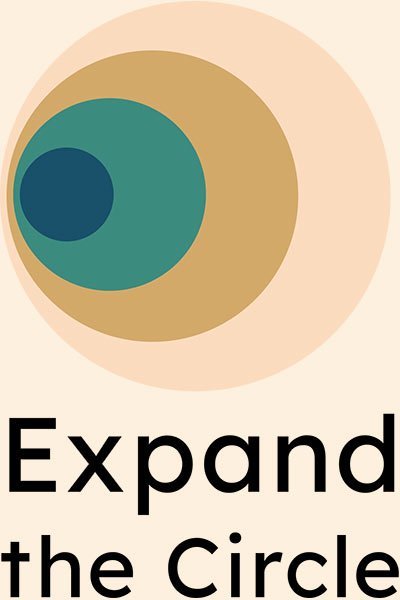Newly diagnosed on the autism spectrum as an adult, now what?
Congratulations on finding out you’re part of the autistic community!
You may or may not share my enthusiasm just yet. In any case, the good news is that knowledge is power. So carry on to learn about where to start to:
Learn about autism and how you experience being autistic
Engage with formal supports
Join autistic networks and communities
Unsure whether it’s worth going through an autism assessment? Feel free to engage with my article on seeking autism assessment as an adult first.
1. Build your autism knowledge and self-understanding
Here is a list of some of my favourites resources:
E-Learning Courses 🖱
FutureLearn Understanding Autism
Co-authored with George Watts, an autistic researcher and regular Autscaper
Free if you complete it within 4 weeks
Books 📖
Autism in Adults by Luke Beardon - a good introduction to learning about autism using an ND-affirmative lens
Women and Girls with Autism Spectrum Disorder by Sarah Hendrickx - a compilation of experiences of autistic women, good to understand the diversity of experiences within the spectrum.
Alicja Nocon reading Fern Brady’s Strong Female Character book. Alicja is wearing a blue t-shirt with elements from the periodic table spelling out the word ‘autism’.
Autistic Comedy and Comedians 😹
Joe Wells - you can now watch his full show ‘I am autistic’ on YouTube
Fern Brady - you can watch Power & Chaos on BBC iPlayer (her book is also fantastic)
BBC Production 🎥
Inside Our Autistic Minds - love the diversity of experiences portrayed in the series
Christine McGuinness: Unmasking My Autism - focus on women and girls
Blogs ✍️
Aucademy - also check out their videos!
Trauma Geek - focused on learning about your nervous system
2. Access formal support
If you waited for a while to get your autism diagnosis, you won’t be surprised that it can take some time to access further formal support too. However, it’s worth it - and if you start the process now, you should be in a good position to engage with extra support in several months having had the time to process the news.
If you’re in higher education in the UK, you might eligible for Disabled Students' Allowance (DSA). The grant covers the cost of a learning needs assessment (mine was very thorough) and follow-on learning support: from assistive technology software and training to a study skills mentor and mental health mentor. Back in 2020, I waited 3 months from applying to getting my support in place.
If you’re in employment in the UK, you might be eligible for Access to Work (AtW). The grant covers a very basic workplace needs assessment (mine was a 20-minute phone call) and work support training: from neurodiversity training for your team to workplace strategies coaching and a job aide for up to 20% of your work time (see the AtW employee guide here). Although AtW say they will process applications within 3 months, it can take up to 6 months to hear back from AtW (but once you do, the process is swift).
If you’re unemployed and living in the UK, you might be eligible for specialist mentoring via Autism Forward to help you prepare for, find and maintain paid or voluntary employment.
Join a post-diagnosis group, either locally or online. NDSA offer a 20-week online Pathway programme in which you’re going to learn about autistic wellbeing alongside a group and 1-1 with your mentor. It’s free to join but there are usually only two intakes per year.
Finally, research and reach out to a specialist coach or mentor who supports late-diagnosed adults. This will help you integrate your learning and take it further. Beware waiting lists can be long (mine is typically 3-5 months), so make sure to contact a coach early to join their waiting list.
3. Connect with the community
There are different ways to connect with other autistic people, from industry-based networks and organisations, employee resource groups (or affinity groups) by employers to online forums, local meet-ups and the autistic conference.
Autscape - a conference and retreat by autistic people for autistic people. In person and online
Local meet-ups: search for events on Meetup and Eventbrite
Industry-based networks
Financial Services: GAIN, Diversity Project
Gaming: Spectrum gaming
Healthcare: Autistic Doctors International
A final word…
Be gentle with yourself 💚
Getting a late-life diagnosis is often an emotional rollercoaster. There will be doubts, there will be anger, there will be grief. That's OK.
From my experience, the first 6 months can be very intense, though it takes a couple of years (or maybe a lifetime even?) to fully process it and make sense of yourself in this new context. It's as if someone gave you a glasses with the correct prescription and you see yourself fully for the very first time... It takes time to adjust!
And remember: if you’re struggling, do reach out to an autism-affirmative counsellor or therapist.
About the Author:
Alicja Nocon is the founder of Expand the Circle. Her mission is to empower late-diagnosed neurodivergent adults to contribute in the workplace on their own terms and for it to make business sense.
Alicja offers coaching and mentoring for neurodivergent adults and neurodivergent employees with autism or ADHD, neurodiversity training for organisations and enjoys speaking at panels and other events.
Related topics:



